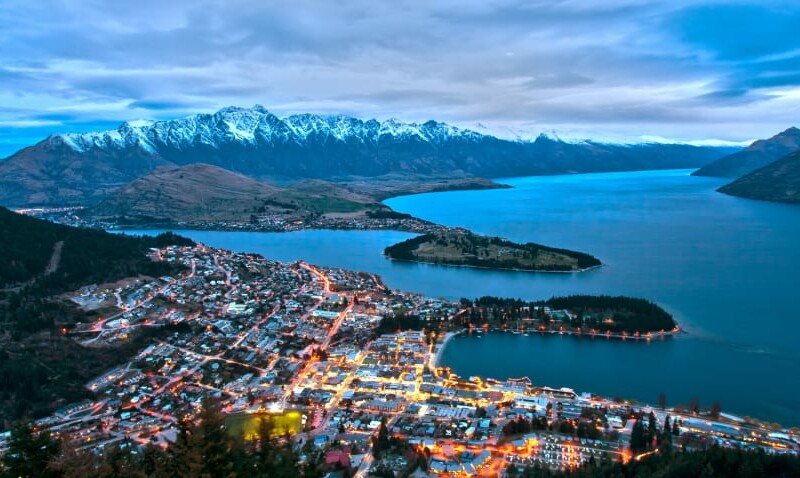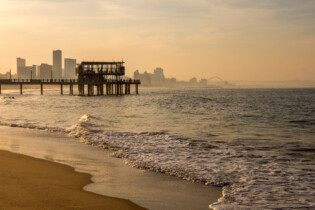New Zealand’s successful response in eliminating community transmission of COVID-19 means that there are no current restrictions on mass gatherings in the country, and domestic business events can resume. The business events sector’s response has been positive, according to research conducted by Tourism New Zealand, with 94% of the respondents planning to hold a business event in the next 18 months.
Face-to-face conferences and offsite meetings are important for their organisation, say 79% of those surveyed, while 39% said they appreciated the importance of these more now than pre-COVID-19.
Face-to-face proves its value
The survey of 232 decisions-makers from NZ-based organisations who held a business event (conference, meetings, incentive trip) domestically or internationally in the last 3 years* reveals the following:
- Of the 94% who are planning a business event in the next 18 months, 29% plan to hold events before December 2020, with the rest planning events for 2021.
- Face-to-face conferences and offsite meetings are important for their organisation, say 79% of those surveyed, while 39% said they appreciated the importance of these more now than pre-COVID-19.
- It is anticipated events in the next 18 months will be smaller and less frequent, compared to pre-COVID-19. This is because businesses budgets will likely be reduced, while associations predict less interest from their members and to feel the effects of closed borders on international attendance.

Another outbreak is a real risk
While the COVID-19 outbreak is under control, the risk of another one has not disappeared. The research highlights that delegates are still wary of the risks of attending events, and their safety remains a priority for event organisers.
In response to this, Conventions and Incentives New Zealand (CINZ) has released a new Voluntary Code for event organisers to create safer events. It is based on the Ministry of Health’s best practice recommendations, such as keeping records for contact tracing, and encouraging basic hygiene and physical distancing.
The research highlights that delegates are still wary of the risks of attending events, and their safety remains a priority for event organisers.
The pandemic has also influenced what 45% of the respondents look for in a destination for their events: many are more price sensitive, are planning events “closer to home”, and put more focus on supplier’s health & safety standards.

Meanwhile, the tech effect continues
Although 67% of those surveyed said that technology is unlikely to replace the need for face-to-face conferences in the long-term, and 86% believe face-to-face will remain vital for their organisation, the use of technology at events remains important. For example, 82% of organisations said that it will be important for conference venues to offer technology that enables hybrid conferences. (Feedback suggests this could be an opportunity to build a larger, multi-channel audience, rather than detract from an event’s in-person turnout.)
“Associations need to offer virtual components to their face-to-face meetings. But to work well, it needs to leverage off a physical event. The two go hand-in-hand. No one likes ‘death by zoom’. Humans like to meet.”
Respondents noted: “Associations need to offer virtual components to their face-to-face meetings. But to work well, it needs to leverage off a physical event. The two go hand-in-hand. No one likes ‘death by zoom’. Humans like to meet.”
Only 15% of the respondents believe technology will replace face-to-face meetings in the long-term.
Other opportunities to boost the sector
Suggestions to persuade organisations to hold Business Events in the next 18 months included:
- Offering more favourable cancellation policies to share risk
- Providing added value such as free catering or transport
- Offering special rates for venues and activities
- Financial assistance such as risk analysis or funding sponsorship
*Sample: 88 Associations/56 NFP/ 71 Corporates/17 Other. The survey was conducted between 10 and 19 May by Kantar.
New Zealand’s COVID-19 timeline
28 February – The first case of COVID-19 is confirmed.
16 March – All people entering New Zealand must self-isolate for 14 days, and public gatherings of more than 500 people are banned.
19 March – Indoor gatherings of more than 100 people are cancelled, excluding workplaces, schools, supermarkets and public transport.
21 March – The country introduces an alert level system to deal with the outbreak. There are four levels, with varying rules based on the risk of infection. Level 1 is the least risk of infection and 4 the highest. The alert level is set to 2.
23 March – The country goes into alert level three.
25 March – The country goes into alert level four, and all events are banned.
Early April – The pandemic reaches its peak.
28 April – The country goes into Alert Level 3.
11 May – The country goes into Alert Level 2. Large ticketed events can go ahead with a 100-person limit, one-meter social distancing and contact tracing.
16 May – The last date of reported new infections.
08 June – The country goes into Alert Level 1, and all restrictions on mass gatherings are lifted.
21 June – There are only 7 active cases of COVID-19 in the country (click here for the country’s COVID-19 stats)







